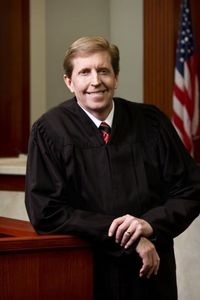SALT LAKE CITY (Legal Newsline) - Utah’s high court reinstated a lawsuit by a young woman who accused Jehovah’s Witnesses elders of forcing her to listen to audio recordings of her own rape as part of an investigation into whether she was guilty of premarital sex.
The case may have been rightly dismissed by a lower court, the Utah Supreme Court ruled, but changes in U.S. Supreme Court doctrine regarding the separation of church and state require a different analysis to justify why.
Ria Williams sued the Kingdom Hall of Jehovah’s Witnesses after she was subjected to a church investigation stemming from her allegations of being raped by a fellow congregant. The woman said what began as a friendship when she was 14 ended in sexual assault.
The church then began an investigation into whether Williams was guilty of the sin of “porneia,” defined as “unclean sexual conduct that is contrary to 'normal‘ behavior” including sex outside of marriage.
During the investigation, four elders of the church played an audio recording of her being assaulted, despite her “crying and protestations not to force her to relive the experience of being raped.” The elders played the recording for “four or five hours,” the court said, with the elders stopping and starting it to ask her “about what was happening” and suggesting she had consented.
The woman sued the church for negligent infliction of emotional distress. The church moved to dismiss, citing U.S. Supreme Court rulings on the First Amendment protection of the free exercise of religion.
The trial court dismissed the case and an appeals court affirmed, finding that even though the allegations of church behavior were “disturbing,” they couldn’t be disentangled from the religious “setting and context” in which they took place.
The Utah Supreme Court reversed the dismissal in a June 3 decision written by Chief Justice Matthew Durrant, sending the case back to be reconsidered under evolving U.S. Supreme Court doctrine.
The First Amendment grants religions “power to decide for themselves, free from state interference, matters of church government as well as those of faith and doctrine,” the state high court noted. Despite this seemingly absolute ban on government interference, the Supreme Court has described the wall between church and state as more of a “blurred, indistinct, and variable barrier” depending upon circumstances, however.
The Supreme Court attempted to delineate the line more than half a century ago with its Lemon v. Kurtzman decision, laying out a three-part test that said the government action must have a secular purpose, neither advances nor inhibit religion, and must not foster “an excessive government entanglement with religion.”
Courts largely focused on the third prong of the test, however, and in its 2019 decision American Legion v. American Humanist Association, the Supreme Court discarded the Lemon test and said courts must look to “history, precedent and tradition” to determine if the state has intruded too far on religious freedom.
As a result, the Utah Supreme Court said, judges must consider “our nation’s historical practices” to determine whether the adjudication of a tort claim violates the First Amendment.
“The district court in this case did not conduct this analysis,” the state Supreme Court said. Instead, the lower court concluded that the woman’s claims would involve “excessive entanglement” of the state in religion, implicated “key religious questions” regarding rules and disciplines, and would require a trial equivalent to “ecclesiastical disciplinary hearings.”
The court’s decision “may ultimately prove to be the correct one,” the Utah Supreme Court concluded, but it must reconsider the case and focus on the history of case law involving tort claims against the church and explain how it applies in this case.
